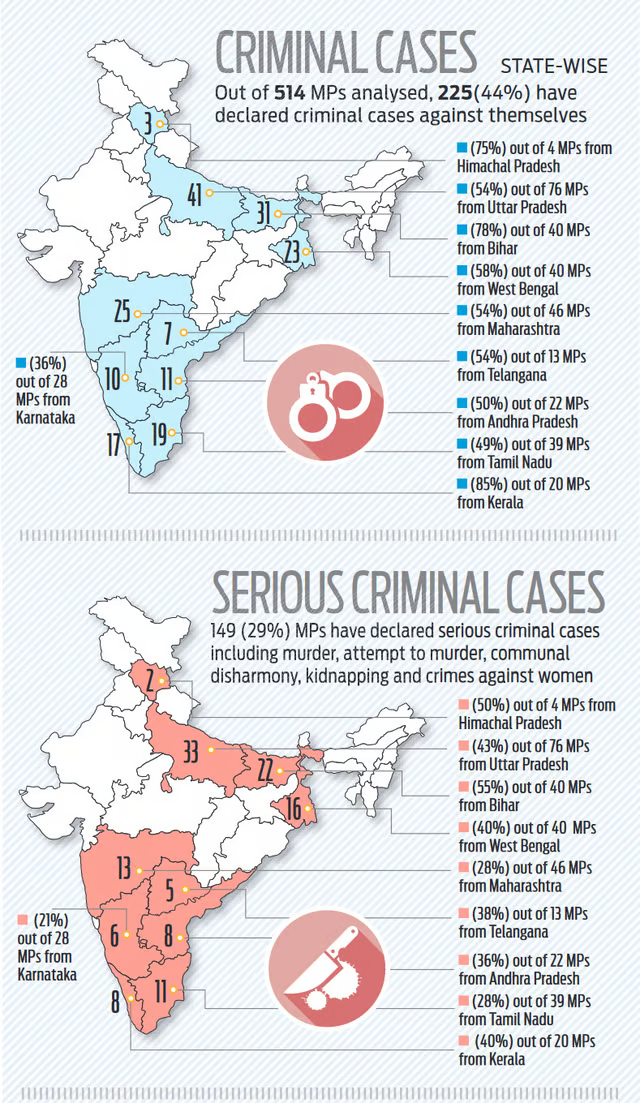44% of Sitting MPs Face Criminal Charges: ADR | 02 Apr 2024
Why in News?
According to the self-sworn affidavits analysed by poll rights body Association of Democratic Reforms (ADR), out of the 514 sitting Lok Sabha MPs, 225 (44%) have criminal cases against themselves.
- The report revealed that among the sitting MPs with criminal charges, 29% face serious criminal cases, including allegations of murder, attempt to murder, promoting communal disharmony, kidnapping, and crimes against women.
Key Points
- Regarding the distribution of criminal cases among States, Uttar Pradesh, Maharashtra, Bihar, Andhra Pradesh, Telangana, and Himachal Pradesh stand out with more than 50% of their MPs facing criminal charges.
- Criteria for serious criminal cases:
- Offence for which maximum punishment is of 5 years or more
- If an offence is non-bailable
- If it is an electoral offence (For eg: bribery)
- Offence related to loss to exchequer
- Offences that are related to assault, murder, kidnap or rape
- Offences that are mentioned in Representation of the People Act, 1951 (Section 8)
- Offences under Prevention of Corruption Act, 1988 and crimes against women
- Under Article 105 of the Constitution, MPs enjoy certain privileges so that they can perform their parliamentary duties without let or hindrance.
- One of the privileges is that an MP cannot be arrested in a civil case 40 days before the commencement of the session or a House committee meeting, and 40 days thereafter.
Non-Bailable Offences
- Any offence not mentioned as bailable under the First Schedule of CrPC or any other law is considered as non-bailable offence.
- A person accused of a non-bailable offence cannot claim bail as a right. Section 437 of CrPC provides for when bail may be taken in case of non-bailable offence.
- A person accused of non-bailable offence can be granted bail provided the accused does not fall under the following grounds:
- There are reasonable grounds to believe that he committed an offence punishable with death penalty or life imprisonment.
- That the accused has committed a cognizable offence and he had been previously convicted of an offence punishable with death, imprisonment of seven years or more.
- That the accused had been previously convicted on two or more occasions of commission of a cognizable offence punishable with imprisonment for three years or more but not less than seven years.
- There are exceptional cases in which law gives special consideration in favour of persons i.e., where the accused is a minor, a woman, a sick person etc. by virtue of Section 437(1) of CrPC.
Association for Democratic Reforms (ADR)
- It is an apolitical and non-partisan, non-profit organisation in India, working on electoral and political reforms for over 25 years.
- It was established in 1999 by a group of professors from the Indian Institute of Management (IIM) Ahmedabad.

